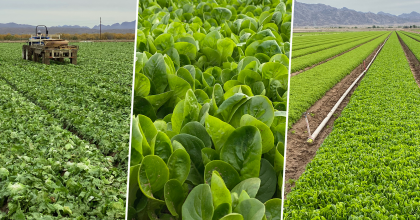Outbreaks of Foodborne Illness
When two or more people get the same illness from the same contaminated food or drink, the event is called a foodborne illness outbreak.
FDA investigates outbreaks to control them, so more people do not get sick in the outbreak, and to learn how to prevent similar outbreaks from happening in the future.
FDA’s Coordinated Outbreak Response and Evaluation (CORE) Network was created to manage not just outbreak response, but surveillance and post-response activities related to incidents involving multiple illnesses linked to FDA-regulated human food, dietary supplements, and cosmetic products. Learn how outbreaks are investigated.
Note: Not all recalls, alerts, and advisories result in an outbreak of foodborne illness. Check recent Food Recalls and Safety Alerts.
Investigations
Outbreak Investigations are managed by FDA’s CORE Response Teams. The investigations are in a variety of stages, meaning that some outbreaks have limited information, and others may be near completion.
Advisories
Public health advisories are issued for outbreak investigations that have resulted in specific, actionable steps for consumers to take to protect themselves.
How FDA Investigates Foodborne Illness Outbreaks
The FDA has produced a video that shows what FDA does to ensure the food supply is safe and how we identify and remove FDA regulated food products from the market that are causing people to get sick. It explains each step of the outbreak investigation and how CDC, FDA, and state public health partners work together to respond to foodborne illness using science and modern technologies such as whole genome sequencing.
Protect Yourself from Foodborne Illness
Find information about buying, storing, and serving safe food. Learn more about preventing foodborne illness for those at higher risk including older adults, pregnant women, diabetics, and others.
- Foodborne Illness-Causing Organisms in the U.S.
- People at Risk of Foodborne Illness
- Refrigerator Thermometers: Cold Facts about Food Safety
- Safe Food Handling
- Food and Water Safety During Hurricanes, Power Outages, and Floods
- Preventing Listeria
- Foodborne Pathogens
- More on how to Buy, Store & Serve Safe Food
Who to Contact
Consumers who have symptoms should contact their health care provider to report their symptoms and receive care.
To report a complaint or adverse event (illness or serious allergic reaction),
visit Industry and Consumer Assistance.
HFP
Food and safety related Recall Announcements
Apr 01
Walker’s Wine Juice LLC Recalls Product Due to Possible Health Risk
Mar 30
Undeclared Allergen in Trader Joe’s Hot Honey Mustard Dressing with Use By Date of 05/27/2025 Issued by Fresh Creative Foods
Mar 27
Cromer Food Services, Inc. Recalls Chicken Salad on White Sandwich Due to Undeclared Milk Allergen
News

Plan to Improve Foodborne Outbreak Response
FDA released the Foodborne Outbreak Response Improvement Plan to enhance the speed, effectiveness, coordination, and communication of investigations into outbreaks of foodborne illness.

Leafy Greens STEC Action Plan
The FDA and its partners in the public and private sectors have made significant progress in advancing the safety of leafy greens since the release in March 2020 of the Leafy Greens STEC Action Plan (LGAP).
